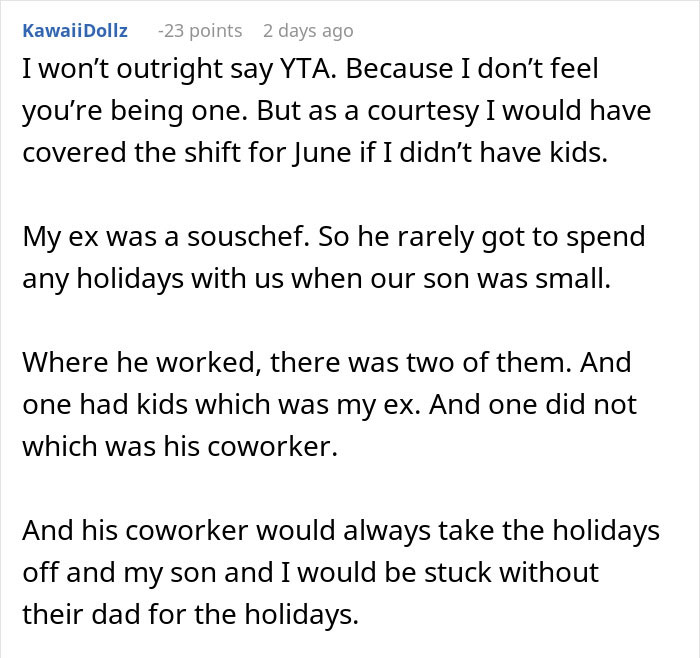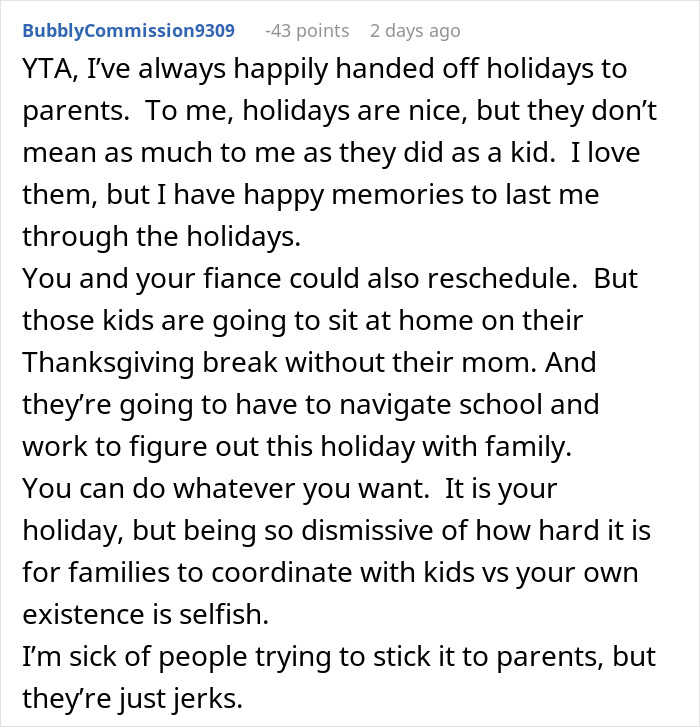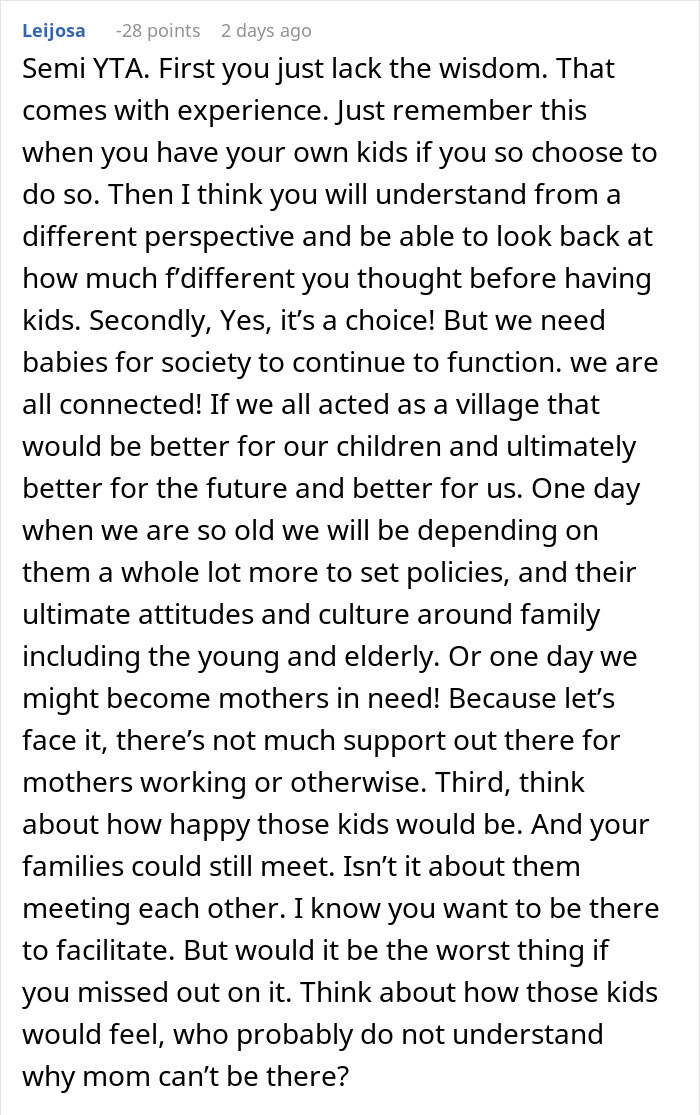Paid time off is a precious commodity among employees that can cause a lot of unwanted office drama. Many of these incidents seem to rise with the holidays approaching, as you’re about to read.
A woman refused to switch shifts with a co-worker who wanted to spend Thanksgiving with her children. She finds it unacceptable to feel “pressured” and give way to colleagues with parental obligations.
The employee now asks the AITAH subreddit if her actions were uncalled for. Below, you’ll find the entire story and mixed responses from readers.
Paid time off can cause serious drama between co-workers

Image credits: Daniel Martinez/Unsplash (not the actual photo)
This woman refused to switch shifts with a colleague who wanted to spend Thanksgiving with her children
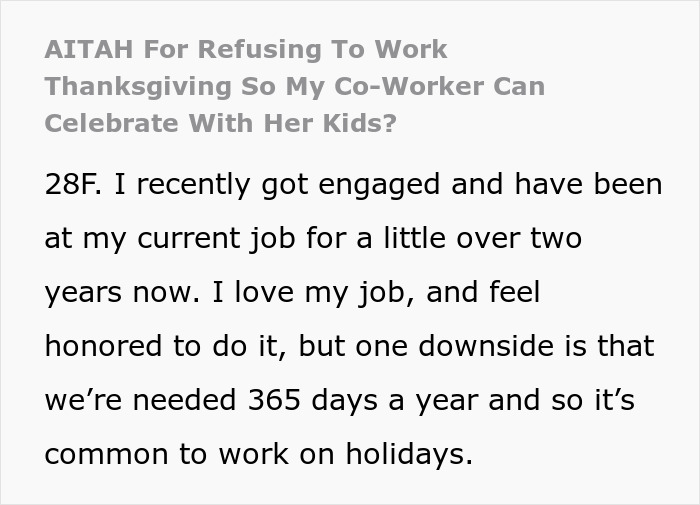
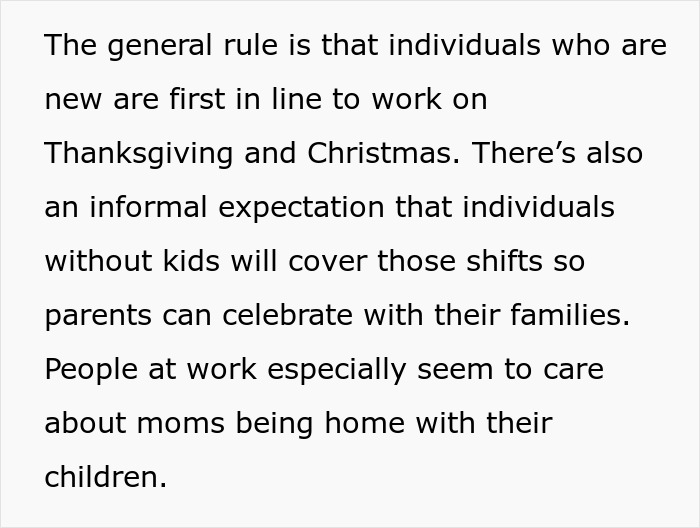
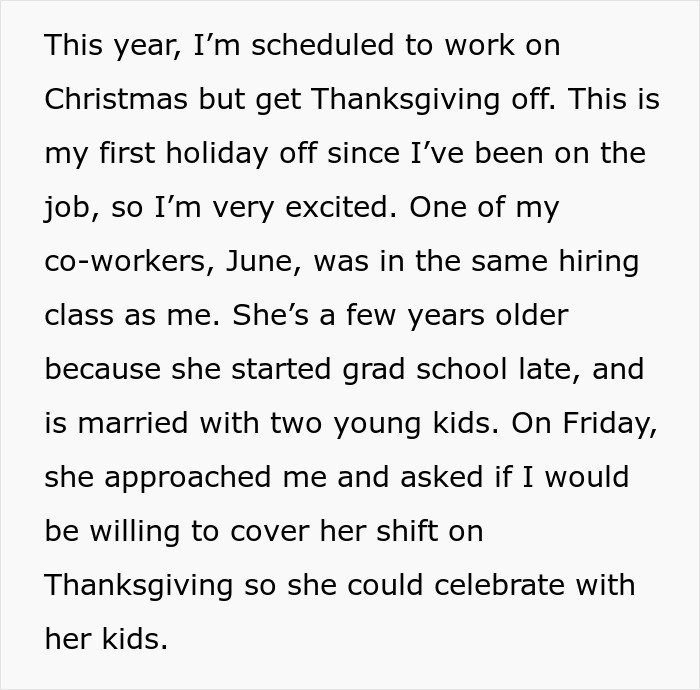
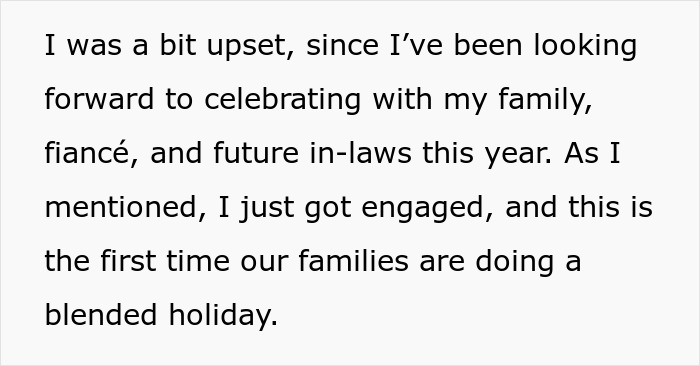
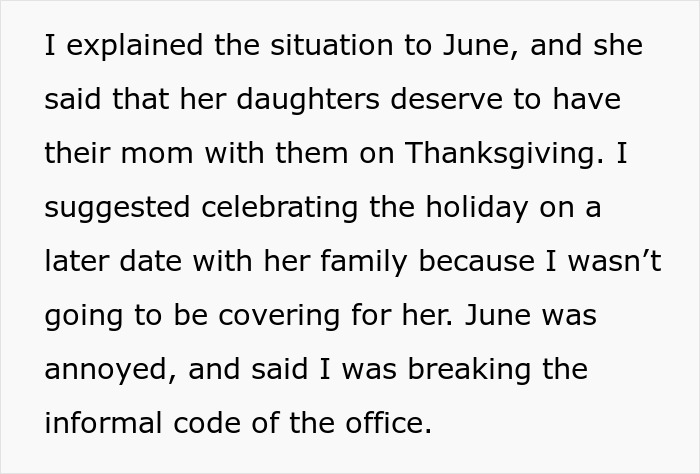
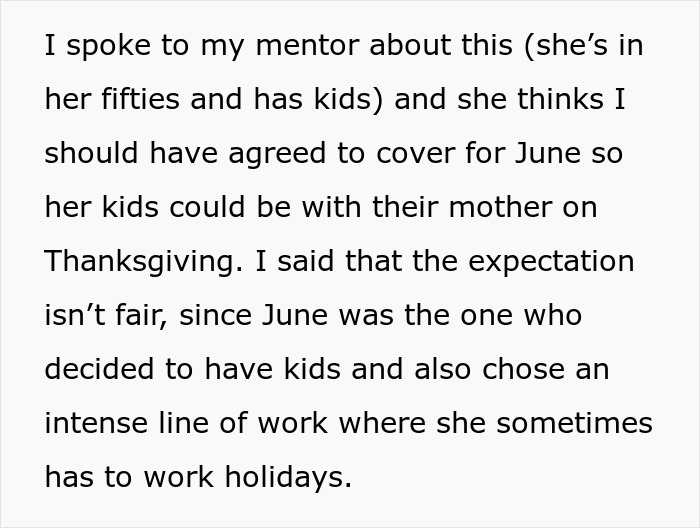

Image credits: Karolina Grabowska/Unsplash (not the actual photo)
She believes it is unfair for non-parents like her to give way to employees with kids constantly
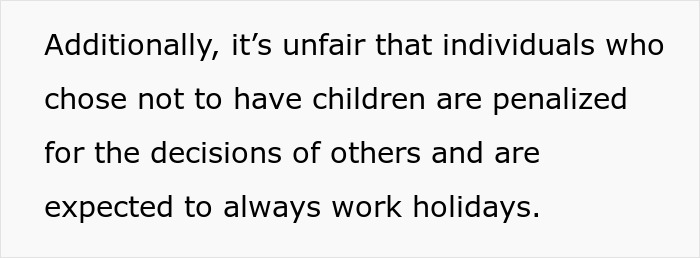
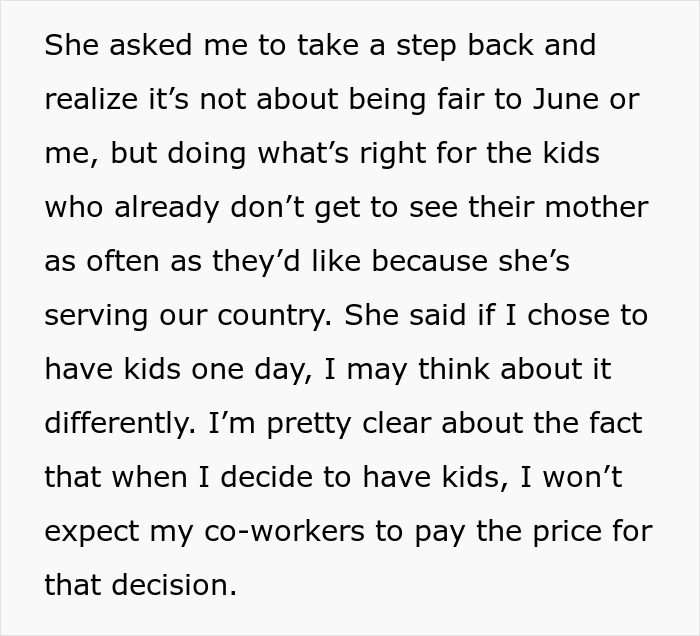
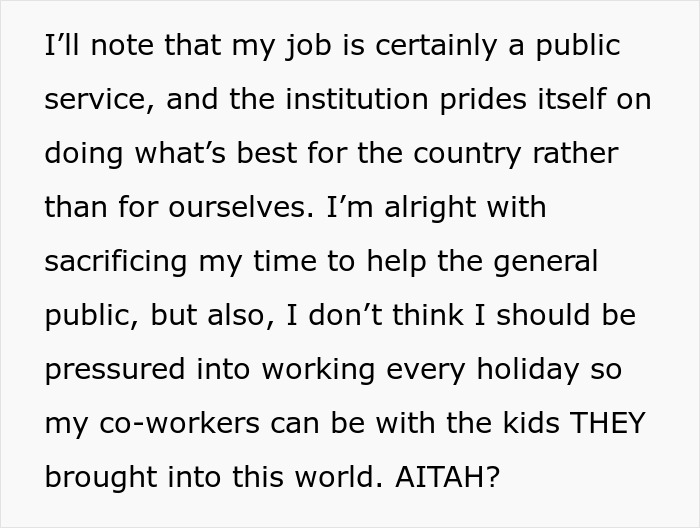
Image credits: HuntMuted5501
Parents and child-free employees experience some form of unfair treatment

Image credits: Jason Goodman/Unsplash (not the actual photo)
While the author is seemingly within reason to cry foul over supposed “unfair” treatment for being child-free, her colleague and other parent employees experience the same struggles.
In a 2022 survey by SHRM, 72% of respondents believe that child-free workers aren’t treated fairly. On the other hand, 67% also stated that employees weren’t treated justly because they had children.
However, this survey shows that child-free employees may have it tougher. 63% of respondents saw them being denied time off, and 69% noticed they had to work overtime at least once. 70% of respondents claim their non-parent colleagues were given a heavier workload.
As for employees with kids, 48% of survey respondents believe they are likelier to be promoted, and 53% said they have better chances of getting a raise.
Here’s a staggering statistic: 81% of survey takers “strongly agree” that child-related absences are more important.
Apart from these numbers, recruiting consultant Aimee Fahey shares a similar observation. As she stated in an interview with HuffPost, employees with children “get preference” for more flexible work schedules and an “unspoken acceptance” of kid-related events having more importance than their child-free counterparts.
Speaking out against the biases toward parent employees is necessary

Image credits: Alexander Dummer/Unsplash (not the actual photo)
Many professionals have begun to point out what appears to be discrimination against child-free employees in the workplace.
In an article for Fast Company, Brand Velocity Group’s Chief of People and Culture Officer Lauren Serota called for paid sabbatical leave for workers without kids, as parents have their maternity and paternity leaves.
She also proposed flexible working hours and conditions for ALL employees, regardless of their obligations outside their jobs.
But until that happens across the board, child-free employees must speak out. Licensed clinical psychologist Dr. Ellen Walker suggests doing so assertively.
“Ask that leave away from work be offered on an equal basis so that everyone can have the opportunity to focus on dreams and aspirations,” Dr. Walker wrote in an article for Psychology Today.
It all comes down to taking responsibility for one’s decisions and respecting each other’s needs. As Dr. Walker noted in closing, give yourself some leeway to leave work early without feeling guilty, like how you’d show generosity to a colleague who needs to clock out early to attend their kid’s soccer game.
“Childfree adults, you do not need to apologize for your choice,” she wrote.
The author took a stand and even suggested that her colleague celebrate another day. Besides, she had her time off scheduled ahead of time and is entitled to it.
Some readers sided with the author
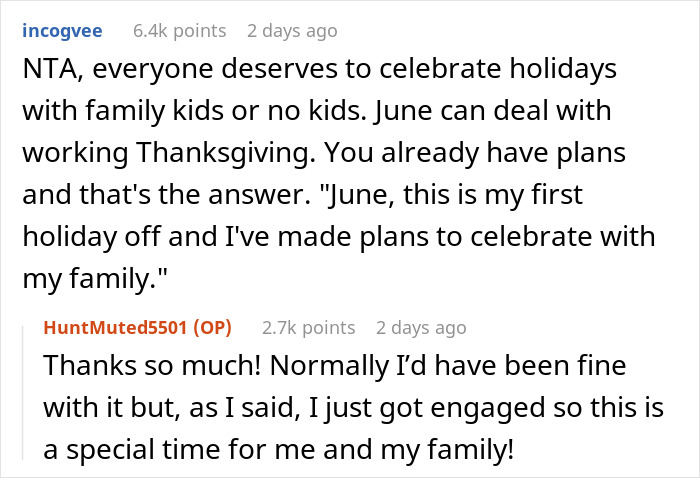
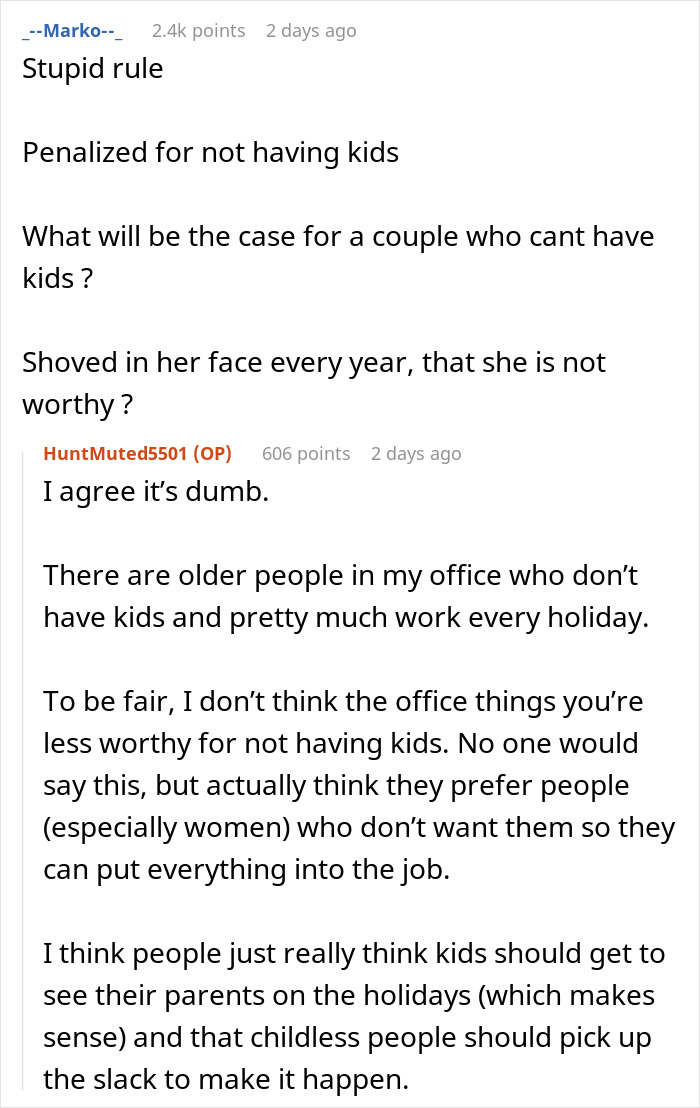

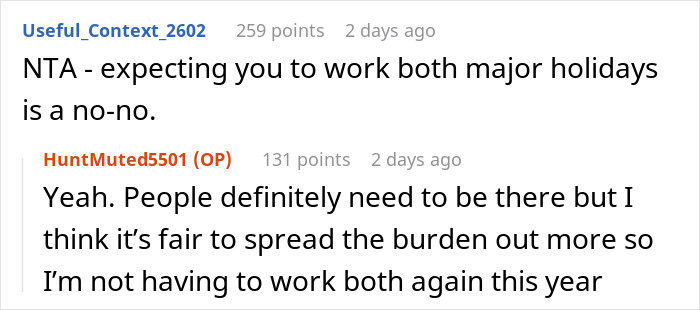

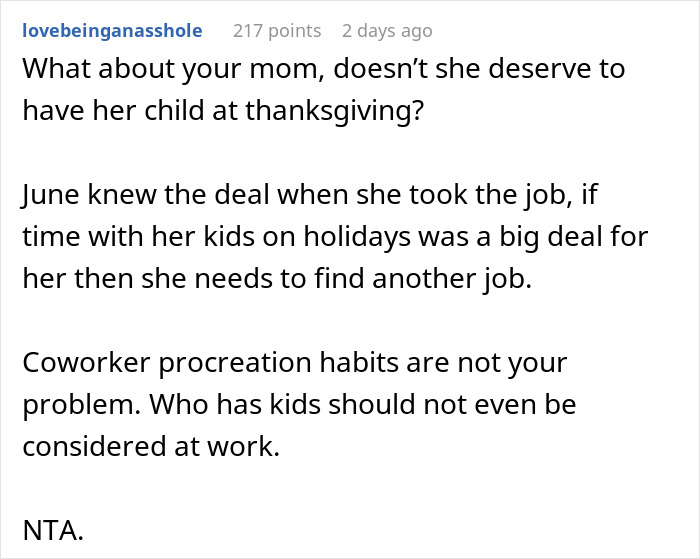
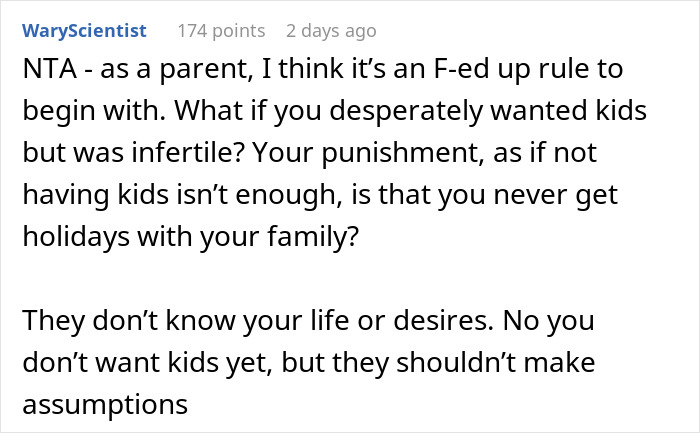
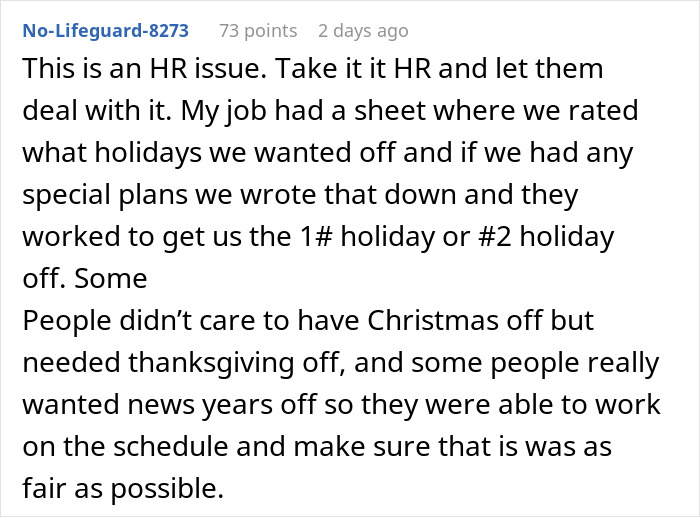

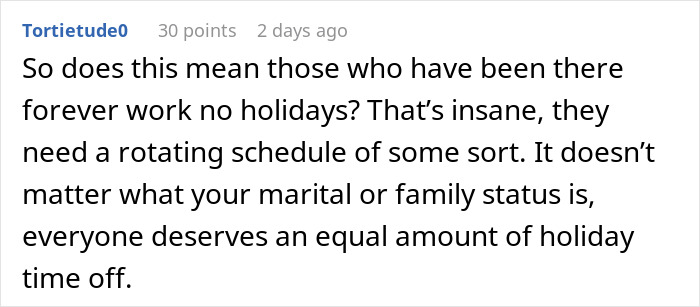
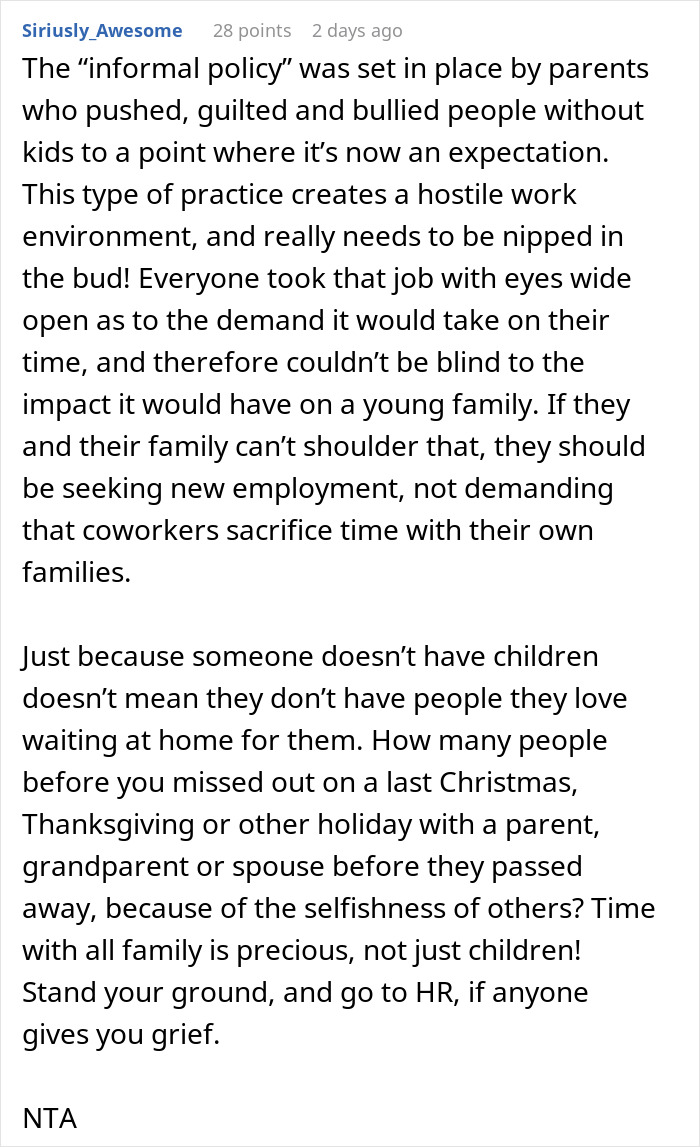

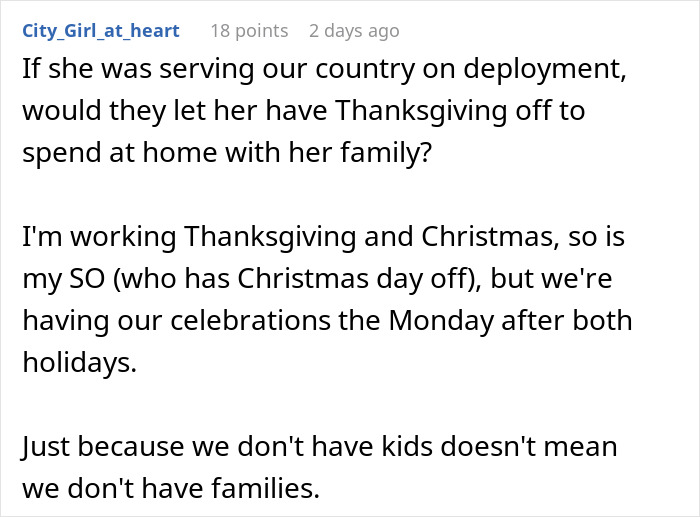

Those who didn’t gave her the “you’ll feel different when you have kids” spiel
